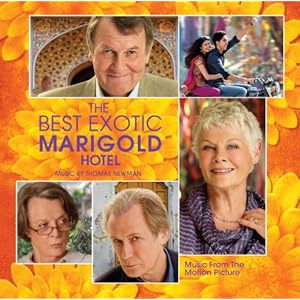It is, I think, fitting that Saturday Afternoon at the Opera follow the weighty, doom-filled and relentlessly serious Tristan of Wagner with Rossini's tuneful bird, La Gazza Ladra.
From the opening notes of it's immensely popular overture and screaming snare drum, used in film, television, elevators and cartoons as well as the great concert halls and opera houses where we enter a wildly slapstick mixture of mock militarism, comic lightness and parody of dire fate - all wrapped in a gossamer elegance. While Tristan "appears" to be about eveything and is finally about music, La Gazza Ladra (The Thieving Magpie) pretends to be about nothing, but like the Wagner, it is finally a great feast of the voice and examination of human foibles from the comic as opposed to the tragic angle. For lovers of the voice, it is an Olympics of Vocalization requiring at least six outstanding singers and four "rock steady" principals. They never get a break. It is said that Rossini altered the work into later life, not changing the plot but endlessly elaborating ornament and vocal demands as he encountered great singers. It is almost as long as Tristan and packed into two unrelenting acts that must keep us laughing for almost three and a quarter hours!
The plot is conjured out of thin air and is apparently based on a French play that ends in tragedy. In Rossini's "semi-seria" concoction the darkness always threatens, but then is scattered by light and laughter. In a provincial household of an upper middle class couple the serving maid and the son of the house are about to be married in spite of the mothers furious objections. The hen pecked father can't see the problem and does not believe that she is responsible for some mysteriously missing family valuables. Simultaneously as the two couple struggle, our maid, Ninetta and her beloved Giannetto combat the parents, Fabrizio and Lucia. Then add to this a lustful politician pursuing our maid and her father fleeing the army. He, Fernando, has had an argument with his Captain. Ninetta's being charged with theft and the father desertion and both are under penalty of death and that's just Act I :
Veni fra queste braccia
mi balza il cor nel sen!
Come to my arms...
my heart is pounding in my breast!
This my dear is the language of true love.
For this true love she will risk prosecution by the spurned politician, Il Podesta (Sam Ramey) and the threat of the firing squad. As part of the narrative rushes toward what looks like a catastrophe for father, daughter and her lover a most mysterious and unlikely culprit is uncovered who might extricate them all ...
Please tune in to this Saturday Afternoon at the Opera at noon for Rossini's comic masterpiece , La Gazza Ladra, here on KPAC and KTXI.
by Ron Moore


















